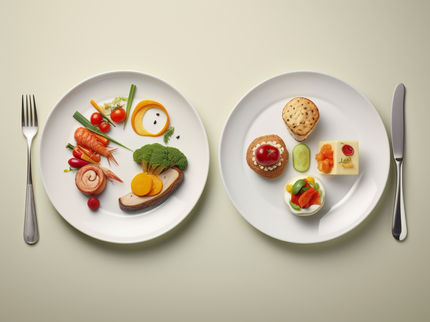Influencers promote 75 percent unhealthy foods
Three-quarters of the products that German-speaking influencers post about on various social media channels are so unhealthy that they violate the World Health Organization's (WHO) advertising standards for children. That's according to new research by a team led by Eva Winzer of MedUni Vienna's Center for Public Health, presented at this year's European Congress on Obesity in Maastricht. The researchers' analysis shows that teenagers are confronted with ads for 18 products every hour on TikTok, Instagram and YouTube, usually without realizing it.

Photo by Sirio on Unsplash
As part of the study, the MedUni Vienna research team analyzed meals, snacks and drinks that appeared in posts and videos by six of the most popular German-language influencers on TikTok, YouTube and Instagram. Together, these three men and three women each reach and influence more than 35 million followers and subscribers in the 13 to 17 age group with their posts. The research revealed that 75 percent of the featured foods and beverages were so high in salt, fat or sugar that they should not be marketed to children, according to WHO guidelines. In addition, most of the posts and videos were not clearly labeled as advertisements. "This underscores the urgent need for guidelines and effective regulation of influencer marketing to children," emphasizes study leader Eva Winzer.
20 percent are overweight or obese
The study results should be seen against the background that 20 percent of children and young people worldwide are already overweight or obese. This is because the advertising of unhealthy products is considered an important factor in childhood obesity and has a lasting influence on dietary preferences and eating behavior. Little research has been conducted on the influence of German-language social media posts about beverages and food. In particular, little has been known about the frequency and content of visual representations of food and beverages by influencers in German-speaking countries.
Encouraging children to lead healthy lifestyles
"How can we expect our children to eat healthily if the content in social media is geared toward foods high in fat, salt and sugar?" asks Eva Winzer in light of the findings from her study and calls for "policy makers to take stronger action against social media in this context. In most countries, there are no restrictions on the marketing of unhealthy foods on websites, social media or mobile applications. Governments need to put measures in place to ensure that children are encouraged to lead healthy lifestyles."
Note: This article has been translated using a computer system without human intervention. LUMITOS offers these automatic translations to present a wider range of current news. Since this article has been translated with automatic translation, it is possible that it contains errors in vocabulary, syntax or grammar. The original article in German can be found here.
Most read news
Organizations
Other news from the department science

Get the food & beverage industry in your inbox
By submitting this form you agree that LUMITOS AG will send you the newsletter(s) selected above by email. Your data will not be passed on to third parties. Your data will be stored and processed in accordance with our data protection regulations. LUMITOS may contact you by email for the purpose of advertising or market and opinion surveys. You can revoke your consent at any time without giving reasons to LUMITOS AG, Ernst-Augustin-Str. 2, 12489 Berlin, Germany or by e-mail at revoke@lumitos.com with effect for the future. In addition, each email contains a link to unsubscribe from the corresponding newsletter.















































